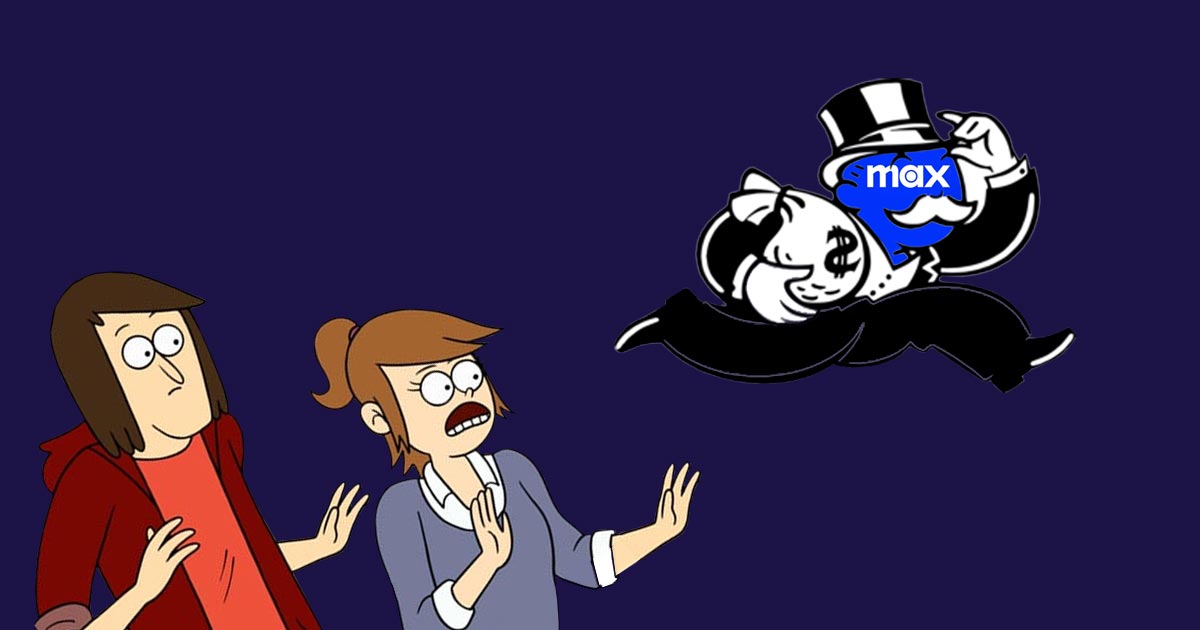Recently I discovered a show by Regular Show creator J.G. Quintel that I’d somehow missed: Close Enough.
The show was originally announced back in 2017, slated for release on TBS. After years of delays, it finally premiered on HBO Max in 2020 as a Max Original. In hindsight, this was a pretty bad move.
In 2022, following the merger of Warner Bros. and Discovery, the new leadership began a ruthless spree of hateable cost-cutting decisions. Among their many casualties was Close Enough, which was quietly canceled in July despite having built a solid fanbase over its three-season run. Just a month later, it was removed entirely from HBO Max — not due to low ratings, not due to controversy, but as part of a cold accounting maneuver.
International viewers could still find it on Netflix for a while, but that too vanished in 2023. Around the same time, digital purchase options started disappearing from storefronts like iTunes and Amazon. No physical DVDs were ever produced. As of this writing, the only legal way I can find to watch the show is to buy Seasons 1 and 2 on YouTube — and even then, only two episodes of Season 3 (episodes 5 and 8) remain available. There’s a good chance that might not last though. Because it’s very likely they used the show as a tax write off.
And just like that, an artist’s work has been buried.
We Keep Seeing It
It’s frustrating. Not just as a fan of animation, but as someone who cares about creative preservation. This isn’t just a Close Enough problem. It’s a trend: major media corporations hoarding and erasing work when it’s no longer “profitable enough”. It mirrors the digital games dilemma we heard much about back when Nintendo shut down the Wii U and 3DS game shops. When a platform shuts down, entire libraries vanish with it, especially titles never released on physical media.
We’re living in a time when more content than ever is being made — and yet, it’s become easier than ever for that same content to vanish. No access. As if it never existed.
I don’t know the perfect solution. But it’s clear that something has to change. Because when studios lock away the work of their creators for the sake of quarterly earnings, it isn’t just a loss for fans — it’s a loss for culture.
A Fiscally Conservative Devils Advocate Joins The Battle
From a financial perspective, these shows cost money to keep around. I get that. Not just in server space, but in licensing fees, royalties, and residual payments to those that worked on it for the time it’s streamed. It doesn’t make fiscal sense to force these companies to continue streaming every show forever.
But Shutup
Because they didn’t stop there.
It costs them nothing to keep a show available for purchase on digital storefronts. If someone buys it, the studio gets paid — and so do the artists, writers, and actors. That’s fair. That’s the system working.
But that wasn’t enough. They wanted more money — not from viewers, but from the IRS.
So they killed the asset. They declared the show a loss and wrote it off for tax purposes. And once that’s done, they’re no longer allowed to profit from it — not even through digital sales. If they did, the write-off would be invalidated. So instead of letting fans keep discovering the work and paying for it, they locked it away forever.
Paying for Less Than Nothing
I’ve been paying for an HBO Max subscription for years now, despite rarely using it. I binge a few shows when something big drops, and then let them take my money for the rest of the year. That ends now.
If Warner Bros. Discovery can trim the fat, so can I.
So here’s to Close Enough, and to my cancelled HBO Max subscription!



